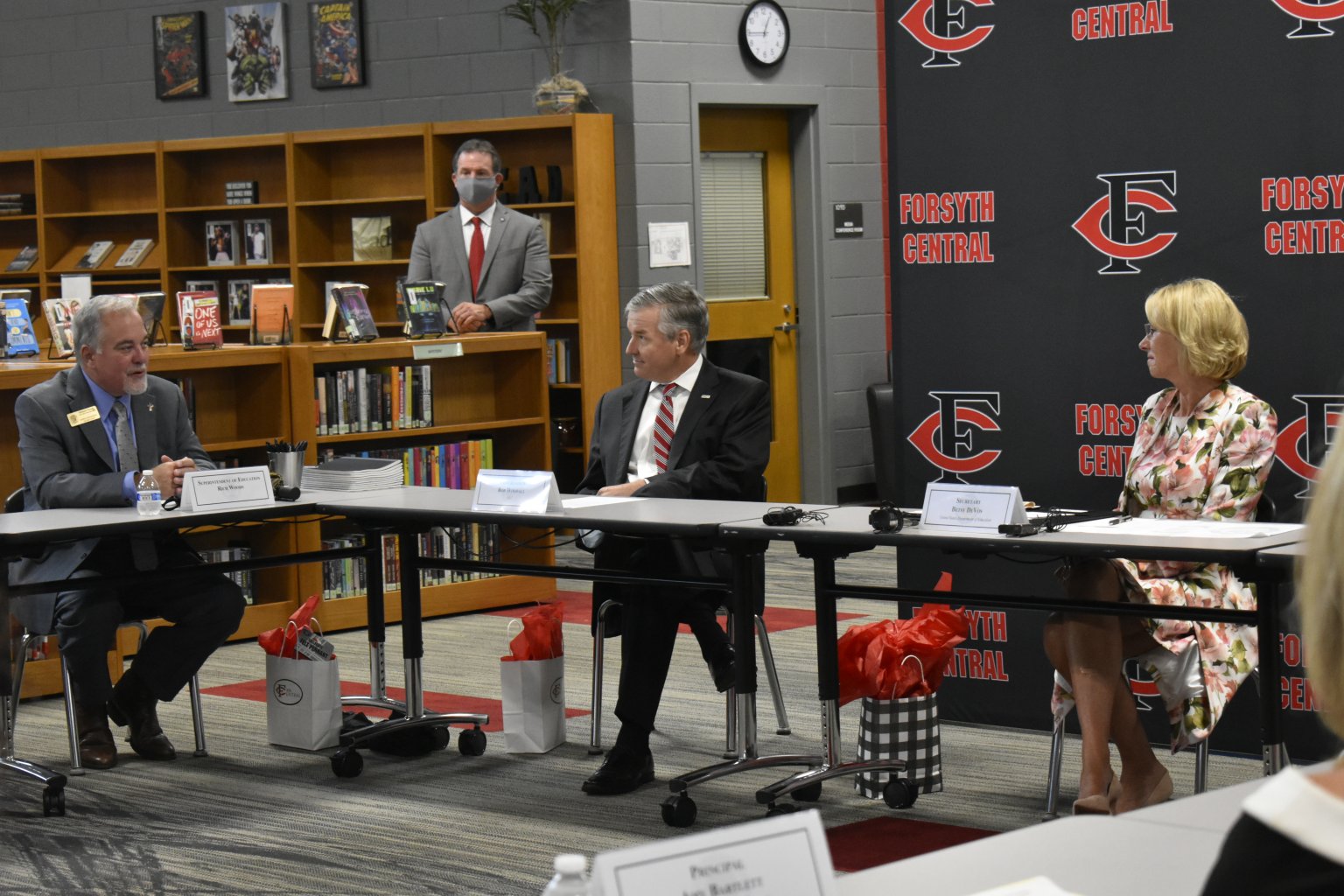
Georgia schools should plan to offer high-stakes tests like Georgia Milestones this year after tests were called off last spring due to the pandemic, U.S. Education Secretary Betsy DeVos said in a letter to state superintendents Thursday.
That pressure to test drew a strong rebuke from fellow Republican Georgia Superintendent Richard Woods, who said discussing testing during a pandemic shows “total disregard for the realities faced by our families, students, and educators.”
“Make no mistake – these test scores will not be used to support teaching and learning, as the proponents suggest,” Woods said. “They will be used to undermine our public education system, understate the heroic efforts of our teachers, and undercut any opportunity we have for a full K-12 recovery.”
DeVos approved a plan to waive federal testing requirements in March for the last school year, shortly after Gov. Brian Kemp temporarily shut down the state’s public schools to prevent the spread of COVID-19.
“That was the right call, given the limited information available about the virus at the time and the need to stop its spread, as well as the practical realities limiting the administration of assessments,” DeVos wrote to the superintendents. “However, it is now our expectation that states will, in the interest of students, administer summative assessments during the 2020-2021 school year, consistent with the requirements of the law and following the guidance of local health officials. As a result, you should not anticipate such waivers being granted again.”
The Georgia Board of Education voted unanimously in June to approve spending $7.5 million to pay the company that develops Georgia Milestones, a legal necessity despite their hope of canceling the tests. The board members had hoped to get much of that money back if the federal Department of Education waived the requirements quickly.
In the 2018-2019 school year, the school board budgeted nearly $26 million for Georgia Milestones, and more than 1.5 million Georgia students took the test. Last school year, the board voted to spend just under $20 million, and fewer than 200,000 students were tested.
Only 4% of Georgians did not agree with the state’s plan to apply for another testing waiver during a public comment period over the summer, during which 98,000 people weighed in, Woods said.
The tests could look different this year, but failing to test students would hinder teachers’ ability to help children who have fallen behind their grade level, DeVos said, adding that her staff would work with states to help make sure the assessments meaningfully measure student performance.
“I understand that presently it might be difficult to imagine the administration of statewide assessments in the same manner as they have been administered in the past,” she said. “In fact, it may be that the assessments will look different. I am reminded of the old saying: necessity is the mother of invention. Now may be the perfect time for you to rethink assessment in your state, including considering competency and mastery-based assessments, to better gauge the learning and academic growth of your students.”
The U.S. Department of Education is also willing to talk about adjusting how the tests will be used in state school accountability formulas, DeVos said.
Woods’ office plans to announce a list of plans soon to reduce the pressure of high-stakes testing this year, he said. Meanwhile, he said parents, teachers and students should not worry about the tests, which he called “neither valid nor reliable measures of academic progress or achievement.”
“Worry about meeting the students and teachers where they are,” he said. “Worry about a safe and supportive restart. Worry about the well-being of your students and teachers. Worry about doing what’s right. If the spring gets here and we are still federally required to administer a summative assessment, we will abide by federal law, but we are also going to take the high-stakes power of the tests away.”
Woods did not say what steps he will propose, but he called for “no test prepping or cramming. No punishing students, teachers, or schools for scores. No giving up weeks to administer, remediate, and administer tests.”







